Latest News | February 23, 2023
Leading Legacy: A Black History Month Spotlight
Black Leaders Making a Difference Across New York State
This Black History Month, we are proud to share our Leading Legacy Spotlights focusing on uplifting Black leadership across New York State. We spoke with Black leaders to learn why representation matters and to learn what inspired them personally to become dedicated to serving their community.
Our conversations below with Dr. Nikki Stewart, Ed.D., Dr. Sidney Hankerson, MD. MBA., Roderick Jones, Ed.D. MPA., Lois Gregory, and Reco Charity offer advice for Black leaders looking to make a difference. They also provide insight into how elevating Black voices and amplifying awareness for issues such as health literacy can enable a better understanding and more engagement with the unique needs of each community.
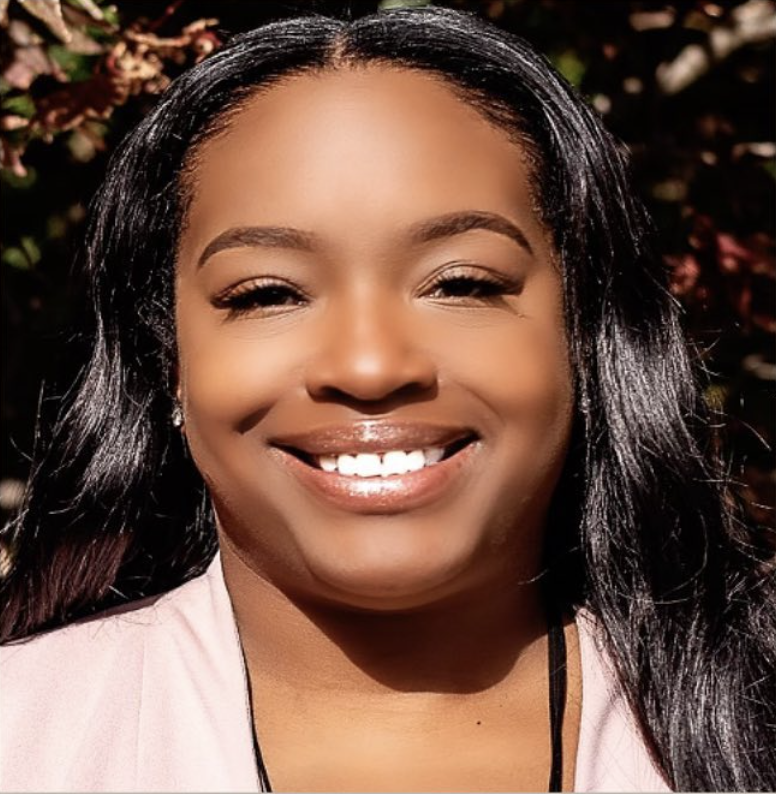
Dr. Nikki Stewart, Ed.D. | Deputy Executive Director – Hudson Guild
Dr. Nikki Stewart has over 20 years of experience in the Health and Human Service field, in particular providing community services and supports to older adults and their families. After serving 6 years in city government, she saw the need to return to community service, where she currently serves as the Deputy Executive Director for Hudson Guild, in the Chelsea area of NYC. Dr. Stewart is responsible for the program oversight of the Arts, Older Adult Services (Older Adult Center and NORC) and Mental Health (Article 31 Clinic and Social Services for Supportive Housing) departments. These services help individuals across their lifespan to live independently, with dignity, as contributing members of the community.
Which Black leaders in nonprofit/social impact have personally inspired your career path?
There have been many leaders of color who have inspired my career path that I had the pleasure of working with throughout my 22 years of community service. From creating a stream of resources for caregivers who care for their frail and/or ailing loved ones, to providing a platform to discuss reducing the stigma of mental health issues among Black and Brown communities. These leaders of color embody the characteristics of authentic leadership and continue to guide me as I grow as a leader committed to serving all individuals of need in New York City.
Can you provide an example of a time your representation as a Black leader within your organization has made an impact on others?
Women of color in a leadership role within any organization serving a diverse community delivers an impact that illustrates the importance of diversity in which the organization represents. I can only hope that as a woman of color representing the diverse community of Chelsea, that I can be a positive representation providing innovative, purposeful, and holistic programming to meet the needs of all participants across the lifespan.
What kind of leader would you like to be recognized as?
I would like to be recognized as a transformational leader who evokes valuable and positive change in individuals and systems.
What piece of advice you would give to upcoming and aspiring minority leaders looking to make change through social impact/ community organizing?
The advice I would give to upcoming and aspiring leaders of color committed to social justice would be to stay devoted to the process of being a change agent for the community. At times it can be hard, but leaders of color are the voice for the voiceless and through dedication, determination, and hard work, change is inevitable.
Why do you think the work within health equity and literacy is so important to discuss during Black History Month?
It is imperative to keep health equity and literacy in the forefront of services provided, especially in the work of social services. It allows for people to equally have the same opportunity for success. However, the importance of health equity and literacy shouldn’t just be discussed during a specific time of year but discussed ongoing as a permanent shift in practice for practitioners across all professions.
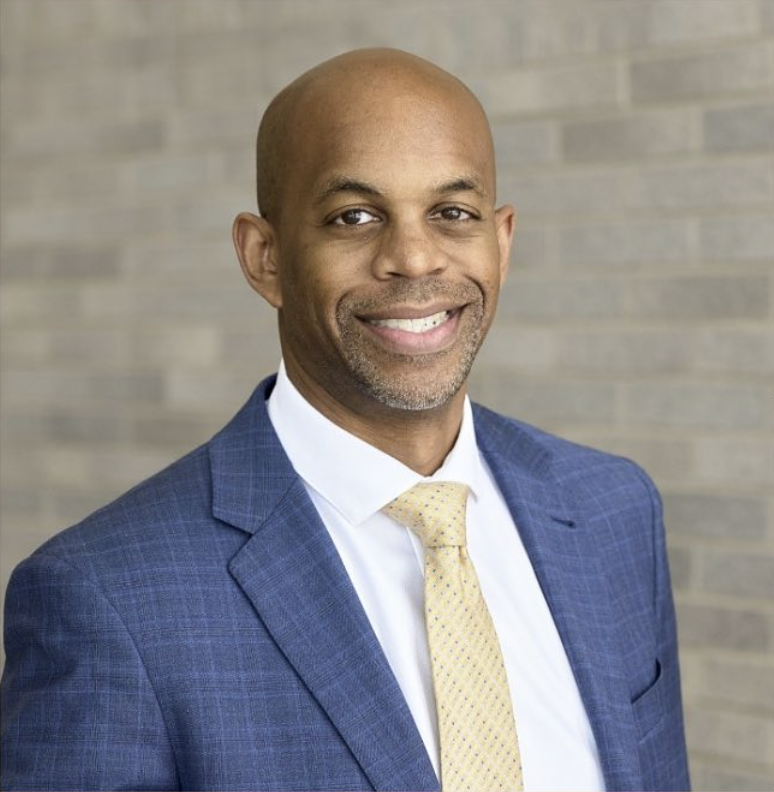
Dr. Sidney Hankerson, MD. MBA. | Associate Professor and Vice Chair for Community Engagement – Icahn School of Medicine at Mount Sinai
Originally from Fredericksburg, Va., Dr. Hankerson developed an interest in Psychology at the University of Virginia. He then traveled South to receive his Medical Degree (MD) and Masters of Business Administration (MBA) from Emory University in Atlanta. Dr. Hankerson is an Associate Professor and Vice Chair for Community Engagement at the Icahn School of Medicine at Mount Sinai in the Department of Psychiatry, and Director of Mental Health Equity Research at the Institute for Health Equity Research (IHER), in the Department of Population Health Science and Policy.
Which Black leaders in nonprofit/social impact have personally inspired your career path?
Mary Pender-Green, LCSW, Phyllis Harrison-Ross, MD, Annelle Primm, MD, MPH, and Edmund Gordon, PhD.
Can you provide an example of a time your representation as a Black leader within your organization has made an impact on others ?
At Mount Sinai, I presented at the 2022 Aspen Ideas Festival. I delivered a keynote address to the Bezos Scholars, a group of young people from around the world who are committed to making long-lasting health/social changes within their communities. I was able to share how my identity as a Black man in medicine provided unique challenges that I’ve had to overcome and strategies for them to succeed in their unique contexts. The feedback from the scholars was overwhelmingly positive and one of them wrote about my impact through an online blog. I was humbled and inspired.
What kind of leader would you like to be recognized as?
I would like to be known as a leader who loved being in community, brought out the best in people, committed to social justice, and maintained an unwavering standard of excellence.
What piece of advice you would give to upcoming and aspiring people of color looking to make change through social impact/community organizing?
My “7 Habits for Young Leaders”
- Surround yourself with winners: people who make you a better version of yourself
- Find and defend your why
- Do what brings you joy
- Don’t let anyone define you
- Be willing to stand alone
- Embrace failure
- Believe
Why do you think the work within health equity and literacy is so important to discuss during Black History Month?
As we are bombarded with images of racial violence, a commitment to health equity has never been more important. Leaders in medicine must center the voices of Black community members so we can unleash the strengths, resilience, and potential of people with whom we work.
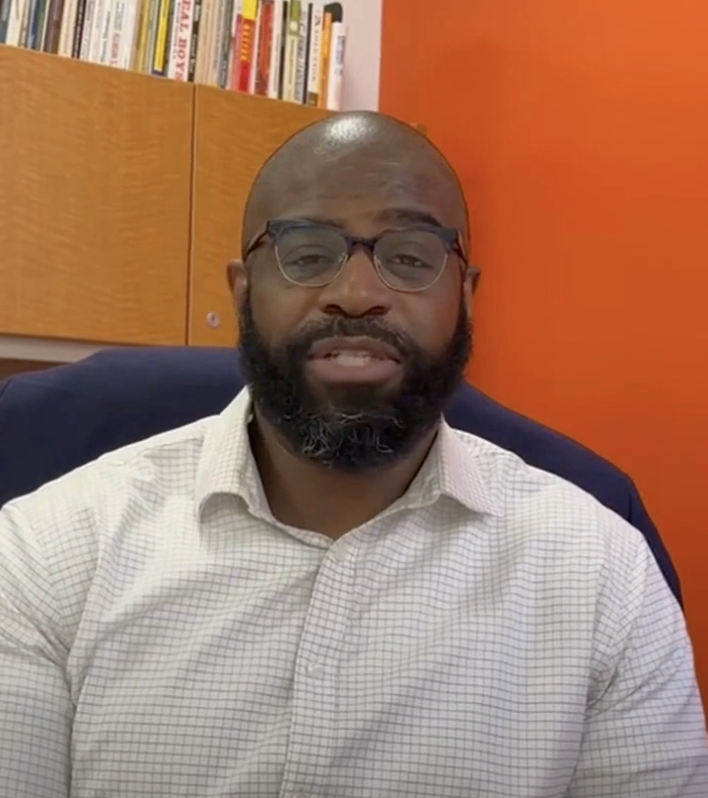
Roderick Jones, Ed. D. MPA. | Executive Director – Goddard Riverside Community Center
Roderick Jones is responsible for the growth, quality of operations, and impact of the Goddard Riverside Community Center. His work ensures the nearly 30,000 lives touched directly by the center have an equitable opportunity to reach their fullest potential. Goddard Riverside operates 33 locations across Manhattan and serves the entire lifespan from birth to death. Jones and Goddard Riverside Community Center hold to the belief that every person deserves an equitable chance to participate in society.
Below is a video from Jones, discussing health equity and a leader who personally inspired him on his path to becoming who he is today.
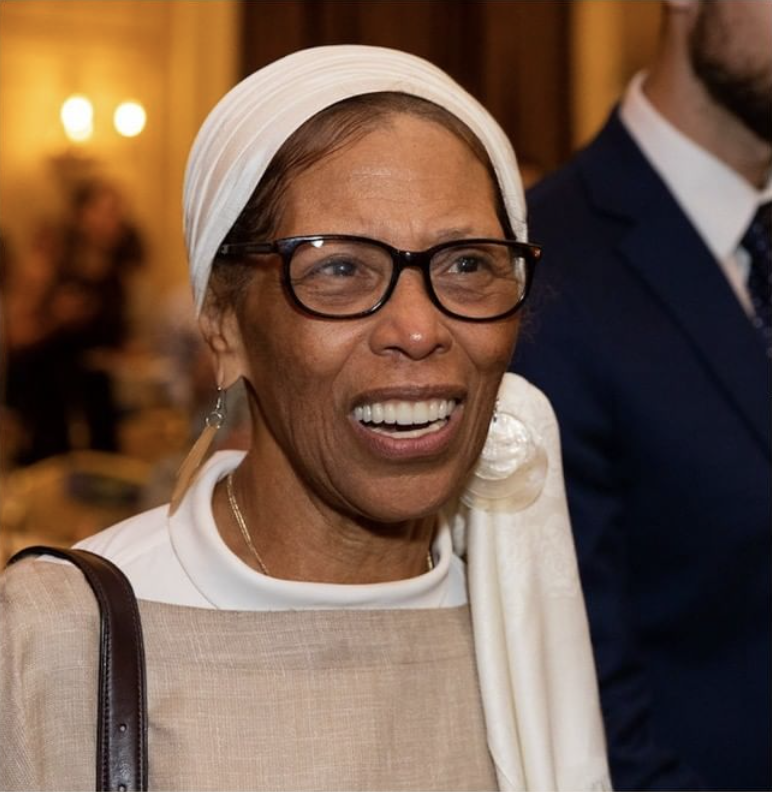
Lois Gregory | Founder and Principal – The Learning Tree Cultural Preparatory School
Lois Gregory is the founder and principal of The Learning Tree Cultural Preparatory School in the Bronx. For the past 40 years, under Ms. Gregory’s leadership, The Learning Tree has educated generations of students, exposing them to academics, the arts, and other cultures. For example, each year, the eighth grade class raises funds to take an international trip as part of the school’s Global Exposure Program. In recent years, Learning Tree students have traveled to Cuba, Brazil, and South Africa.
Which Black leaders in nonprofit/social impact have personally inspired your career path?
When I was very young, living under Jim Crow, we were taught by White teachers that we as Black people were inferior, and many of us believed it, including myself, and it was such an awful feeling. I yearned and longed for answers and to understand why such inequality was permitted. The first time I felt that this philosophy was absolutely unjust and something to stand against was with the killing of Emmett Till, and the first nonprofit organization I learned about was the National Association for the Advancement of Colored People (NAACP).
As I grew, the most outspoken nonprofit organization at that time was the NAACP, under the leadership of Roy Wilkins. Mr. Wilkins was a young, articulate, and educated Black man who was the first person I heard talk about the mistreatment of Black people. He said we had not only the right, but the obligation, to fight against racial injustice. That was my first inspiration to fight for social change. Throughout my teens I made plans for the future to become an educational leader who would inspire,
Can you provide an example of a time when your representation as a black leader within your organization has made an impact on others?
An example of my representation as a Black leader in my organization made an impact on others has been evidenced over the past three decades by: the large number of graduates that attend prestigious high schools and colleges, and remain scholars.
Another example are the many teachers who were inspired to advance their education, and many becoming school building leaders themselves.
Another impact is finding a way to take young middle school students all over the world to have them broaden their lens, letting them know that they are an integral part of the world and learning to respect and interact with global communities.
What kind of leader would you like to be recognized as?
The kind of leader I would like to be recognized as is: one who inspires equity for all, justice, patience, compassion, and the idea of life-long learning.
What piece of advice would you give to upcoming and aspiring minorities looking to make change through social impact/community organizing?
The advice I would give would be to know “why” and then design their mission and have the tenacity and compassion to consistently build their dreams, through the ups and downs knowing the “key is to keep your eyes on the prize.” Finally, study those whose shoulders we stand upon.
Today, some of the inspirational nonprofits are My Brother’s Keeper Alliance founded by President Barack Obama and AKILA Work Songs, a nonprofit founded by April R. Silver to support arts and culture.
Why do you think the work within health equity and literacy is so important to discuss during Black History Month?
Health equity and literacy are two of the most important areas of need to improve upon in the Black and Brown communities. Often low-income communities do not have the literacy skills or research skills to find or even search for the best ways to find healthcare options, or even know when, how, or what healthcare options to look for. Often literature addressed for healthcare needs and options is written above the reading level or comprehension level of low-income communities.
It is especially important to point this out during Black History Month, because more attention is given to minorities during this time. Media is extremely more prevalent during Black History Month. We know the need should be year round, but we must jump on the opportunity when more attention is given to these communities.
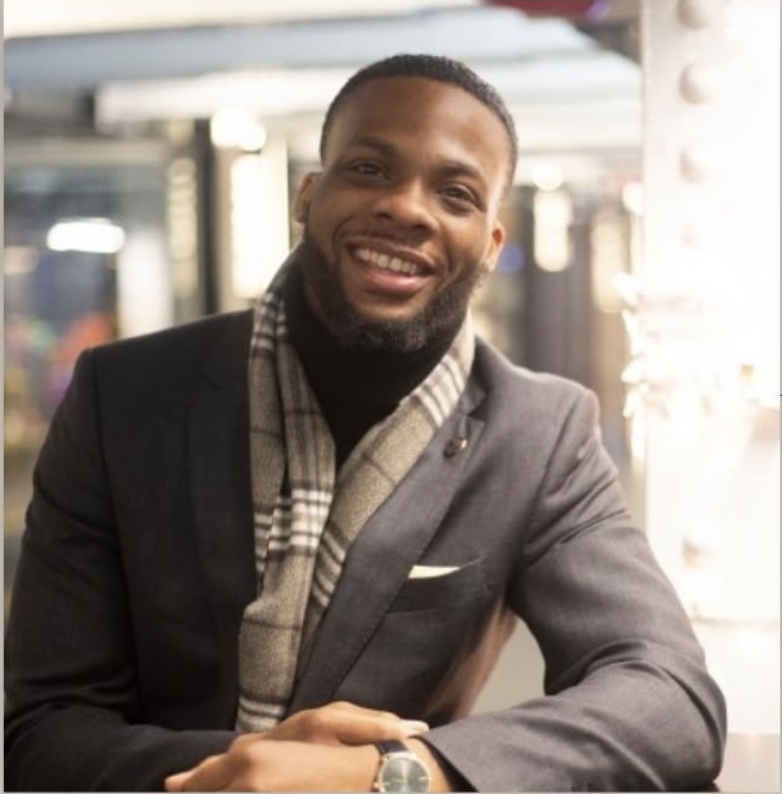
Reco Charity | Member – The Children’s Scholarship Fund’s President’s Council
Originally from Richmond, Va., Reco Charity is an attorney at Paul Weiss. He earned a full scholarship to Virginia Tech and went on to graduate from Georgetown University Law Center. As a member of Children’s Scholarship Fund’s President’s Council, Reco has mentored CSF alumni in high school and college about success in college and careers at in-person and virtual events. He is firmly committed to philanthropy and helping the next generation; only a few years out of law school, he established a donor-advised fund to serve and support inner city and low-income youth.
Which Black leaders in nonprofit/social impact have personally inspired your career path?
I had a full circle moment recently. There were a couple of lawyers who started an after school creative writing/debate program for inner-city, Richmond public schools, and my high school was the pilot school. Consequently, I was part of the first class of students participating in the program. Even in high school I knew I wanted to be a lawyer, but I had no idea what the road to becoming a lawyer consisted of.
Although I didn’t realize it at the time, this program would help me tremendously on my journey. When I was in undergrad, I was still in touch by email with them, and also sought their advice on law schools while applying. Then in 2021, I was invited to be a speaker at an event in Richmond, and one of the lawyers who started this program was in attendance. He told the story of how the program began with the pilot program I participated in.
It was a full circle moment, because now I’m an attorney as well. I had a chance to tell him that he and the other lawyers who started that program added a lot of value to my journey because I didn’t know any Black attorneys before meeting them, and they really helped shape my trajectory in a way that was amazing.
Can you provide an example of a time when your representation as a Black leader within your organization has made an impact on others?
Representation matters, and I see evidence of this within so many aspects of what I do and organizations I’m a part of. If we are talking about Black leadership within the legal community, and “big law” in particular, it becomes even more apparent because there are so few of us.
Recently, I was asked to talk at a law school in DC about ESG and what the landscape looks like. I talked for maybe an hour and a half (or at least it felt that way), and afterwards, the students stayed around to ask more questions and talk more. Although the students were excited to learn about ESG, they also wanted to talk about my experience being a Black senior associate (seventh-year) at a major law firm. They had never met a Black person who went to a major law firm after law school and stayed at the firm. So they were asking about my experience, and how I could help guide them and introduce them to people.
It was a reminder, for lack of better words, that our presence oftentimes forces us into leadership roles, and puts us in the position to be a role model, teacher, mentor, sponsor, etc. It’s both an honor and a responsibility to pay it forward and be a resource and confidante for those who come after me, in the same way those before me have been a resource and confidante for me.
What kind of leader would you like to be recognized as?
The first thing that comes to mind when I hear the word “leader” is servant leader. I believe being a leader, or the leader, means being the first person to serve—that’s the role. So what type of leader would I like to be viewed as? A servant leader who didn’t lead from a pedestal or podium, but someone who was really focused on that service piece of leadership.
What piece of advice would you give to upcoming and aspiring minorities looking to make change through social impact/community organizing?
One piece of advice I found valuable was, “If you’re in the room, you’re qualified to be there,” which is some advice I would go back to whenever I’d feel like an imposter or felt out of place. From personal experience, in a lot of the rooms I’m in now, I’m oftentimes by far the youngest person in the room, and at times the only Black person in the room. However, remembering that I’m qualified to be in these rooms, that I have the experience and expertise to be in these rooms, and that I have value to contribute to the happenings in these rooms—I’m able to contribute in a meaningful way and thereafter be invited into more of these rooms as a key contributor. That said, my advice would be to remember as you are reaching new milestones in your journey that you are qualified to confidently contribute in each of the rooms you find yourself within.
Why do you think the work within health equity and literacy is so important to discuss during Black History Month?
It’s important year-round. It is an important conversation because one’s health is directly connected to literacy, education, and quality of life. If a person has access to healthier foods, health facilities, and education relating to healthy life habits, is able to exercise regularly and have resources available to help navigate mental health related matters—then such person’s overall wellbeing is improved. Access to options that improve your overall wellbeing and health condition is directly connected to your ability to obtain a quality education (including a child learning to read and write) as well as meaningfully contribute to your community.
At some point, I believe most of us have heard about the connection between mind, body, and spirit—each pillar being essential for one’s overall wellbeing. Both health equity and literacy have direct impacts on a person’s ability to meaningfully engage with each of these pillars and live a life where each pillar is in balance.
As we reflect on Black History Month, it’s critical that we uplift Black leadership and their dedication to service in each of their communities as agents of empowerment, cultural awareness, and change.
